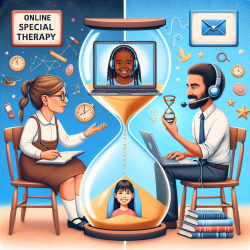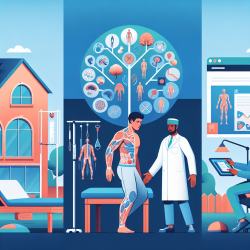Introduction
Attention-Deficit/Hyperactivity Disorder (ADHD) is a prevalent condition affecting approximately 2-7% of children and adolescents. The challenges these children face in school settings are well-documented, including difficulties with attention, impulsivity, and hyperactivity, which can lead to poor academic performance and social issues. While pharmacological treatments are available, they are not always suitable or effective for every child. This is where non-pharmacological interventions come into play, offering alternative strategies to support children with ADHD in educational environments.
Understanding the Research
A recent systematic review titled Synthesising the existing evidence for non-pharmacological interventions targeting outcomes relevant to young people with ADHD in the school setting: systematic review protocol aims to identify and evaluate non-pharmacological interventions that can be implemented in schools. The goal is to develop a toolkit of evidence-based strategies that primary school staff can use to improve the school experience for children with ADHD.
Key Findings and Strategies
The review highlights several promising intervention components:
- Organizational Skills Training: Programs that focus on improving time management, task planning, and organizational skills have shown significant benefits for children with ADHD.
- Behavioral Interventions: Techniques such as positive reinforcement, structured routines, and clear expectations can help manage ADHD symptoms effectively.
- Social Skills Training: Enhancing peer interactions and teacher-student relationships can reduce conflicts and improve social integration.
- Self-Esteem Building: Interventions that focus on boosting self-esteem and self-worth can mitigate the negative impact of ADHD on a child's mental health.
Implementing Interventions in Schools
For practitioners looking to implement these strategies, it's crucial to consider the following:
- Customization: Tailor interventions to the individual needs of each child, considering their unique strengths and challenges.
- Collaboration: Work closely with teachers, parents, and other stakeholders to ensure a consistent approach across different environments.
- Training: Provide adequate training for school staff to effectively deliver these interventions.
- Evaluation: Continuously assess the effectiveness of interventions and make necessary adjustments.
Encouraging Further Research
While the current review provides a solid foundation, there is still much to learn about the most effective components of non-pharmacological interventions for ADHD. Practitioners are encouraged to engage in further research and contribute to the growing body of evidence in this field.
Conclusion
Non-pharmacological interventions offer a promising avenue for supporting children with ADHD in school settings. By implementing evidence-based strategies, educators can create a more inclusive and supportive environment that fosters positive outcomes for these students. For those interested in delving deeper into the research, the original paper provides a comprehensive overview of the methodologies and findings.
To read the original research paper, please follow this link: Synthesising the existing evidence for non-pharmacological interventions targeting outcomes relevant to young people with ADHD in the school setting: systematic review protocol.










